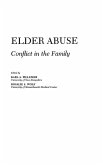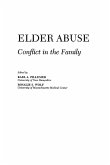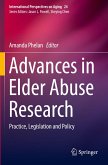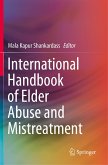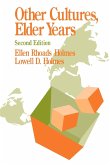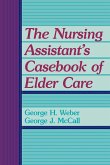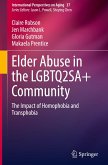"The beauty of this important book lies in its conclusion… This book provides the roadmap that has led us to our current dilemmas and offers the path forward to a truly just society for all." -Terry Fulmer, PhD, RN, FAAN, President of The John A. Hartford Foundation Delivering the first comprehensive analysis of elder justice and its implications for policy and practice, this book offers a promising approach that ensures the rights, safety, and security of all older Americans. It explains the antecedents of elder justice in the fields of elder abuse, aging, and public health, and describes the opportunities for achieving more comprehensive, cohesive, and integrated public policy. The text examines the cumulative impact of ageism, racism, sexism, heterosexism, class, and other forms of disadvantage and isolation on the lives of older adults and how these contribute to poverty, disease, disability, abuse, and neglect. It draws from the fields of public health and health equity, and plans devised by international organizations that frame elder abuse as a human rights issue. Practical and achievable goals in the prevention of elder abuse aid policy makers, program developers, grant-makers, and service providers in the fields of gerontology, social work, public health, and nursing in their efforts towards elder abuse prevention. Key Features: * Identifies institutionalized ageism in public policy and practice * Proposes core principles of elder justice to guide policy and service development * Introduces knowledge and techniques from the fields of elder abuse and public health * Provides greater understanding of social determinants and how they are addressed in the public health arena * Offers techniques for improving access to the legal system for people with physical, cognitive, and communication disabilities * Offers practical and achievable goals; objectives and recommendations; and models for state, national, and international policy and programs.


